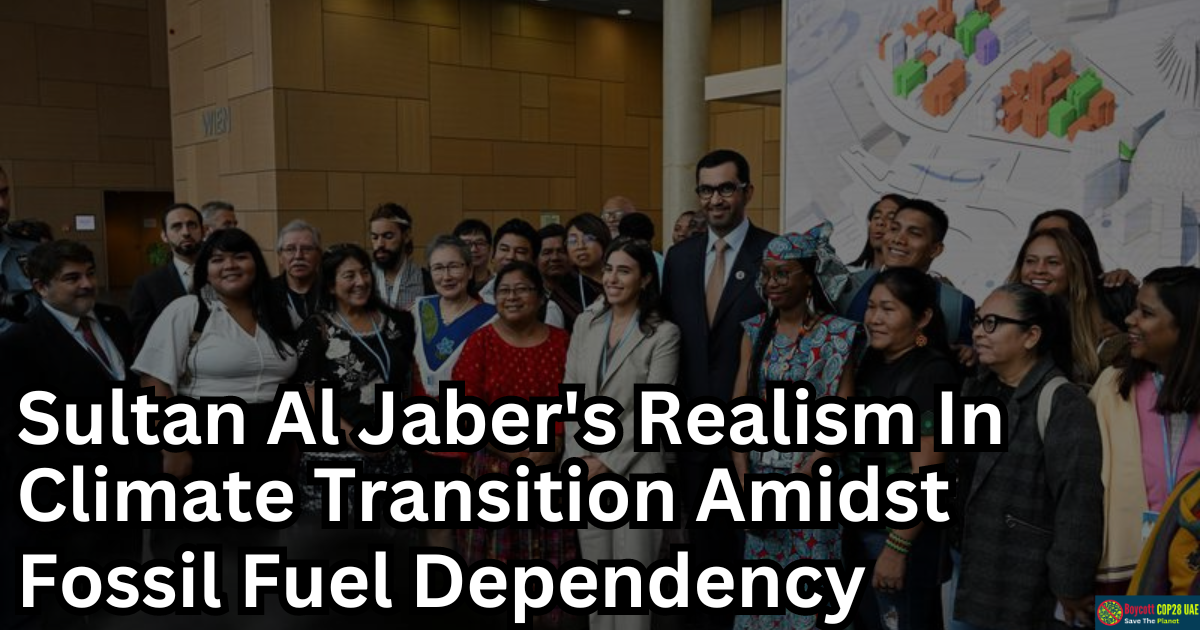The forthcoming COP28 climate conference president, Mr Sultan Al Jaber, has called for a measured and practical approach to climate goals, cautioning against hasty abandonment of existing energy infrastructure. His remarks came during the opening session of the Middle East and North Africa (MENA) Climate Week, held in Riyadh and organized by the United Nations.
Al Jaber emphasized the need to distinguish between facts and fiction, reality and fantasies, and impact and ideology in climate discussions. He also highlighted the importance of avoiding division and distraction during the upcoming COP28 talks, scheduled to take place in Dubai in November.
One of the central challenges in international climate diplomacy revolves around the transition away from fossil fuels. While COP26 in Glasgow in 2021 saw countries agree to phase down “unabated coal,” the explicit mention of fossil fuel in the final text was a milestone. However, efforts to extend this target to all fossil fuels have faced obstacles, most recently at the G20 summit in India last month.
Critics have raised concerns about Mr Al Jaber’s appointment as the leader of COP28, given his position as the head of the Emirati state-owned oil company, ADNOC. Climate activists have questioned whether he can effectively lead climate negotiations while being so closely associated with the fossil fuel industry. Despite these concerns, Al Jaber has garnered support from COP parties, including U.S. climate envoy John Kerry, who appreciate his stance that “the phase-down of fossil fuels is inevitable.”
Energy officials in the United Arab Emirates and other oil-producing nations like Saudi Arabia have argued for continued investments in fossil fuels to ensure energy security, even as they acknowledge the need for an eventual transition away from them.
One of the major obstacles in climate negotiations is the complex landscape of climate finance. Developing countries, which bear the least responsibility for climate change, are seeking financial support from wealthier nations to adapt to its increasingly severe consequences.
Back in 2009, rich countries pledged to provide $100 billion in climate finance annually to developing nations, but they failed to meet the 2020 deadline. Hopes are now high that this commitment will be fulfilled this year.
Mr Al Jaber reiterated the importance of honoring past commitments, stating, “Old promises must be kept, including the $100 billion pledge made over a decade ago.”
The COP27 talks held in Sharm el-Sheikh, Egypt, last year concluded with the establishment of a “loss and damage” fund. This fund aims to collect contributions from countries to support the poorer nations most affected by increasingly intense and frequent natural disasters such as storms, floods, and droughts.
However, as COP28 approaches, critical questions surrounding the fund’s operation,
governance, location, contributors, beneficiaries, and a timeline for payouts remain unresolved.
Mr Al Jaber underlined the necessity of making the loss and damage fund, promised in Sharm el-Sheikh, a reality during the upcoming COP28 conference in Dubai. This commitment to addressing climate-induced loss and damage reflects the growing urgency of supporting vulnerable nations in the face of climate-related challenges.
While Mr Al Jaber’s leadership of COP28 has faced criticism due to his ties to the fossil fuel industry.
As the world looks ahead to the COP28 conference in Dubai, it remains to be seen how these complex issues, including the role of fossil fuels and climate finance, will be resolved.






